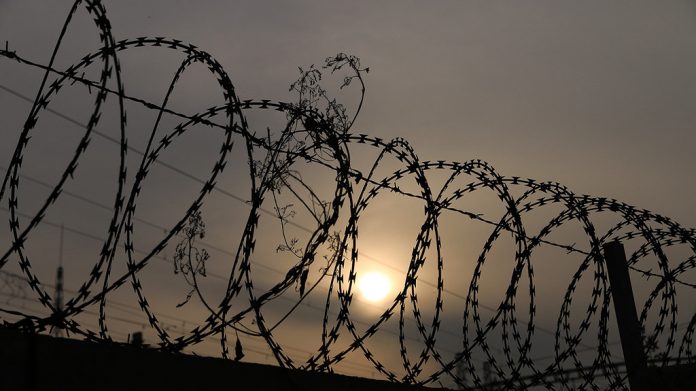The 37th round of the EU-China Human Rights Dialogue was held in Brussels on 1-2 April. The Dialogue was opened by the EU Special Representative on Human Rights, Eamon Gilmore, who stressed the importance of the universality, indivisibility and interdependence of human rights.
The two-day programme allowed for open discussions on a wide range of human rights related issues in China and in the EU. The European Union and China explored areas for enhanced cooperation in the future, in particular in UN fora, on issues related to the rights of the child, business and human rights, and counter-terrorism.
The Chinese delegation focused on achievements in economic and social rights, in particular as regards employment, poverty alleviation and social protection. China also emphasised the outcome of the Universal Periodic Review of China and stressed its approach to interpreting international laws and standards in the light of its national conditions.
While acknowledging that China has made progress on economic and social rights, the EU insisted that equal weight should be given to political and civil rights. Furthermore, international laws and standards are universal and must be applied accordingly. In this regard, the European Union expects China to expedite the process of ratifying the International Covenant on Civil and Political Rights, signed by China in 1998, and implement the recommendations of UN human rights bodies.
The EU highlighted the deteriorating situation of civil and political rights in China, marked by the arrest and detention of a significant number of human rights defenders and lawyers. The EU also raised individual cases and, for those in detention, expressed its expectation that they would be released
The exchange about recent developments in the European Union focused on the protection of fundamental rights, in particular in artificial intelligence and new technologies, gender issues, and the rights of the child. The Human Rights Dialogue also allowed for exchanges on the defence of fundamental rights in the context of counter-terrorism policies, the right to privacy, and the protection of the human rights of migrants and asylum seekers.
The EU highlighted the deteriorating situation of civil and political rights in China, marked by the arrest and detention of a significant number of human rights defenders and lawyers. The EU also raised individual cases and, for those in detention, expressed its expectation that they would be released:
EU national Gui Minhai;
Uighurs, including Ilham Tohti, Tashpolat Tiyip, Rahile Dawut, Eli Mamut, Hailaite Niyazi, Memetjan Abdulla, Abduhelil Zunun, and Abdukerim Abduweli;
Individuals persecuted for their religious beliefs, including Zhang Shaojie, Hu Shigen, Wang Yi, and Sun Qian;
Tibetan activists, writers and religious figures who face criminal charges or have been imprisoned for exercising their right to freedom of expression, including Tashi Wangchuk and Lobsang Dargye;
Human Rights defenders and lawyers arrested in connection with exercising the right to promote fundamental human rights including Wang Quanzhang, Yu Wensheng, Huang Qi, Li Yuhan, Zhou Shifeng, Xia Lin, Gao Zhisheng, and Guo Feixiong;
Individuals imprisoned in connection with their activities in defense of the interest of workers, including Wu Guijun, Zhang Zhiru and He Yuancheng;
Individuals imprisoned in connection with their exercise of the universally-recognised right to the freedom of expression, including Wu Gan, Zhen Jianghua, Lü Gengsong, Zhang Haitao and Lu Yuyu;
Female human rights defenders including Wang Yu, Li Yuhan, and Li Xiaoling
The EU also raised the cases of Michael Kovrig and Michael Spavor, who have been arbitrarily detained, and Robert Schellenberg, who was sentenced to death without due process. The European Union reiterated its opposition to capital punishment in all cases and without exception.
The EU also stressed that all detained individuals must be allowed to be represented by a lawyer of their choosing, be given the possibility of meeting their family members, have access to appropriate medical assistance when required, and have allegations of their torture and mistreatment promptly investigated.
The Human Rights Dialogue addressed the issues of the protection of freedom of religion and belief, the rights of persons belonging to minorities, and the situation in Xinjiang and Tibet
The Human Rights Dialogue addressed the issues of the protection of freedom of religion and belief, the rights of persons belonging to minorities, and the situation in Xinjiang and Tibet. While actions to counter terrorism are essential, such measures must respect the principle of proportionality, fundamental freedoms and international laws. The EU raised the system of political re-education camps which has been established in Xinjiang as a worrying development. While offering supervised visits to the region to international journalists and foreign officials is a positive step, the European Union expects China to also allow meaningful, unsupervised and unrestricted access to Xinjiang for independent observers, including for the UN High Commissioner for Human Rights and UN Special Procedures.
Other issues raised in the Dialogue included torture, judiciary reform, China’s Foreign NGO Activity Management Law, labour rights, freedom of expression on-line and offline, and the freedoms of assembly and association.
The Human Rights Dialogue continued on 2 April with a meeting with the civil society organisations. The Chinese delegation did not participate in this meaningful exchange of views. On the same day, the Chinese delegation paid a visit to S.A.V.E. Belgium, a European NGO working on the prevention of radicalisation, allowing for an exchange of views and experiences.
The Human Rights Dialogue was co-chaired by Paola Pampaloni, Deputy Managing Director for Asia and the Pacific in the European External Action Service and by Liu Hua, Special Representative for Human Rights and Deputy Director General for International Organisations and Conferences, Ministry of Foreign Affairs of the People’s Republic of China. EU Member States participated as observers to the Dialogue.

